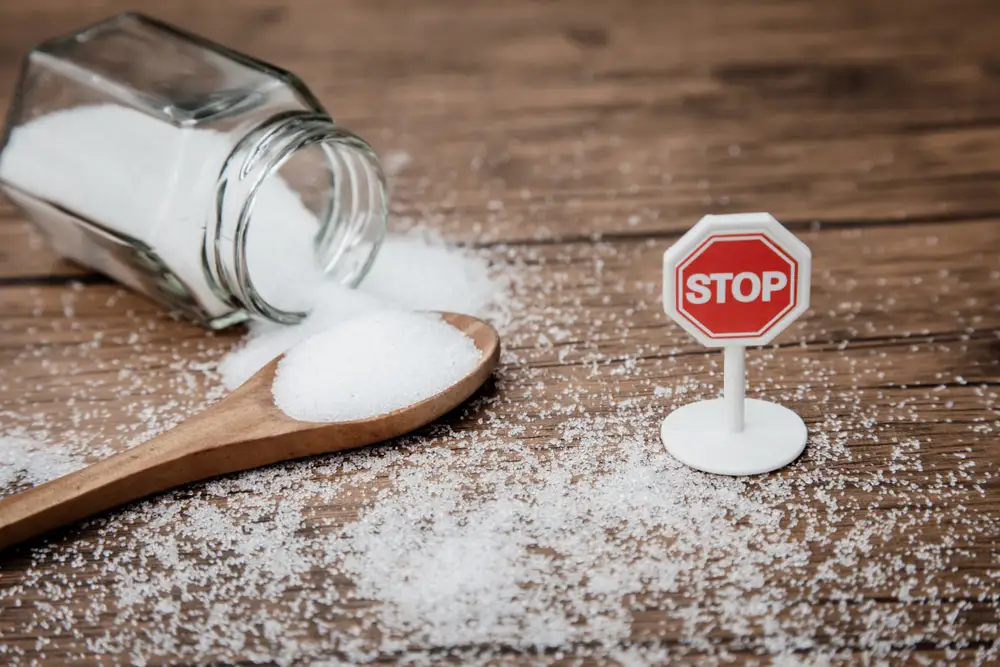Around 1.7 million Australians have diabetes, and it is estimated that up to 500,000 of those have undiagnosed Type 2 diabetes. The majority of people don’t know they have the condition because often symptoms on their own seem more like annoyances rather than signs of a potentially dangerous condition. Because Type 2 diabetes is commonly diagnosed later in life, symptoms are also sometimes dismissed as part of ageing and unfortunately in some cases, by the time the condition is confirmed, the complications may already be present.
Your best option is early diagnosis, which can be achieved with the help of your doctor. However, it’s also important to have some basic knowledge of what the most common symptoms are, so that you can talk to your doctor if you think you may be at risk of developing the condition. Here are five symptoms of diabetes in adults.
1 Increased Urination Is One Of The Early Signs Of Diabetes
Do you find yourself needing to go to the toilet more often during the day? Do you regularly wake up in the middle of the night to urinate?
When your kidneys filter blood to make urine, they cleverly reabsorb all of the sugar and return it to your bloodstream. People with diabetes have abnormally high levels of sugar in their blood, and not all of this sugar can be reabsorbed. Some of the excess glucose from their blood ends up in their urine where it draws more water, which results in unusually large volumes of urine, meaning they have to urinate more often.
This is known as polyuria and it is one of the more common symptoms of diabetes in adults. If you have this condition, you will typically pass abnormally large amounts of urine (more than 3 litres a day compared to an average of 1 to 2 litres per day for adults) at regular intervals throughout the day and night. Increased urination can often result in dehydration, which can affect your immune function and leave you susceptible to all sorts of conditions including damaging your kidney function.
2 One Of The Most Common Signs Of Diabetes Is An Unquenchable Thirst
As we’ve already mentioned, one of the early diabetes symptoms is an increase in urination, both in frequency and in the amount of urine passed when you go to the toilet. However, increased urination can also leave the body in a state of rapid dehydration. A direct result of lost body fluids is the body demanding that these be replenished, which can lead to an unquenchable thirst.
The tricky part of this symptom of diabetes is that for many people it creeps up slowly and is hard to monitor. Excessive thirst is also a common enough symptom that can be caused by any number of things including allergies, a cold, or almost anything that causes a fever.
When linked to another condition as a symptom, excessive thirst is called polydipsia, and in people with Type 2 diabetes it can be accompanied by excessive dryness of the mouth, which is often called ‘cotton mouth’. Under normal circumstances, almost all glucose is pulled out of our urine and back into our body along with most of the water we’ve consumed. However, in people with diabetes who have a larger concentration of glucose in their bloodstream, their kidneys lose the ability to pull out or ‘reuptake’ that glucose from water. This means that the level of glucose eventually gets so high that water can no longer be absorbed back into their bloodstream, resulting in an unquenchable thirst
3 Consult Your Doctor If You Are Experiencing Any Unexplained Fatigue
Another one of the diabetes warning signs is unexplained fatigue, and it can be one of the most frustrating and prevalent symptoms of diabetes. Sudden fatigue can disrupt every aspect of life – from family life and career to your social life and hobbies. It takes lots of energy to have a full and busy life!
People with Type 2 diabetes have high blood glucose levels meaning their blood can become ‘sludgy’, which results in decreased circulation, and means that their cells can’t get the oxygen and nutrients they need. Many people with diabetes also suffer from extreme exhaustion. This is because their blood vessels get literally inflamed, and when this happens, immune cells called monocytes enter the brain and cause fatigue.
4 People With Type 2 Diabetes Often Have An Increase In Appetite
Another one of the common symptoms of diabetes in adults is an increase in appetite. You might ask yourself, what’s wrong with that? However, when you consume more calories than your body needs to expend energy, it can lead to weight gain.
When we eat, we generally feel full, however, people with Type 2 diabetes often still feel hungry even after eating. This is because their muscles aren’t getting the energy they need from their food. The insulin resistance in their bodies keeps glucose from entering their muscles and providing energy, which results in increased hunger that often isn’t satisfied for long after eating a meal.
5 Slow Healing Cuts And Bruises Aren’t Something That Should Be Ignored
Have you ever noticed that a bruise you acquired by a clumsy door bump is taking a long time to disappear? Have you had an abrasion, sore or burn that has taken more than a few weeks to heal? Then it’s time you took a trip to your doctor to discuss one of the possible symptoms of diabetes in adults. Slow healing is due to high glucose levels that can affect the nerves and weaken the immune system, resulting in a slow rate of healing.
Poor circulation as a result of having a diabetic condition can also make it hard for blood (which is needed for skin repair) to reach the areas of the body that might be affected by sores or wounds. This can cause them to remain open and unhealed and increase the risks of fungal and bacterial infections.
While there is currently no cure for Type 2 diabetes, the condition can be adequately managed through medication and lifestyle modifications. That’s why it’s important to be vigilant about maintaining your health and to see your doctor if any of the above symptoms persist.
Do you show some of the symptoms of diabetes in adults? Contact us today on (07) 3711 2880 for a professional consultation.
What Causes Mouth Ulcers? How To Treat & Prevent Them Effectively
Mouth ulcers are a common oral condition that affect most people at some point in their lives. They can be uncomfortable, but they are usually harmless and will heal within 10 to 14 days without treatment. Here’s everything you need to know about mouth ulcers, including what they are, what causes them, the best treatments,…
Acute Vs Chronic Medical Conditions
No matter how old or young you are, we are all susceptible to acute and chronic medical conditions. Both conditions differ in how long they last and how severe the diagnosis is. An illness or condition can be as simple as the flu, or in a more severe case cancer or arthritis. Whether it is…
How Much Sugar Per Day?
Sugar is a type of carbohydrate and a source of energy for our bodies. It can occur naturally in foods like fructose in fruit, glucose in fruits and vegetables, and maltose in wheat and barley. However, manufacturers also often add sugar to extend the shelf life of foods, improve their appearance and/or make them taste…




